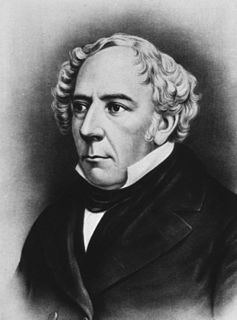A Quote by Henry David Thoreau
There is a chasm between knowledge and ignorance which the arches of science can never span.
Related Quotes
We have heard of a Society for the Diffusion of Useful Knowledge. It is said that knowledge is power, and the like. Methinks there is equal need of a Society for the Diffusion of Useful Ignorance, what we will call Beautiful Knowledge, a knowledge useful in a higher sense: for what is most of our boasted so-called knowledge but a conceit that we know something, which robs us of the advantage of our actual ignorance? What we call knowledge is often our positive ignorance; ignorance our negative knowledge.
Each is liable to panic, which is exactly, the terror of ignorance surrendered to the imagination. Knowledge is the encourager, knowledge that takes fear out of the heart, knowledge and use, which is knowledge in practice. They can conquer who believe they can. It is he who has done the deed once who does not shrink from attempting again.
Without any doubt, the regularity which astronomy shows us in the movements of the comets takes place in all phenomena. The trajectory of a simple molecule of air or vapour is regulated in a manner as certain as that of the planetary orbits; the only difference between them is that which is contributed by our ignorance. Probability is relative in part to this ignorance, and in part to our knowledge.
To oppose knowledge is ignorant, and he who detests knowledge and science is not a man, but rather an animal without intelligence. For knowledge is light, life, felicity, perfection, beauty and the means of approaching the Threshold of Unity. It is the honor and glory of the world of humanity, and the greatest bounty of God. Knowledge is identical with guidance, and ignorance is real error
In real science a hypothesis can never be proved true...A science which confines itself to correlating phenomena can never learn anything about the reality underlying the phenomena, while a science which goes further than this and introduces hypotheses about reality, can never acquire certain knowledge of a positive kind about reality; in whatever way we proceed, this is forever denied us.
Even those who have desired to work out a completely positive philosophy have been philosophers only to the extent that, at the same time, they have refused the right to install themselves in absolute knowledge. They taught not this knowledge, but its becoming in us, not the absolute but, at most, our absolute relation to it, as Kierkegaard said. What makes a philosopher is the movement which leads back without ceasing from knowledge to ignorance, from ignorance to knowledge, and a kind of rest in this movement.


































